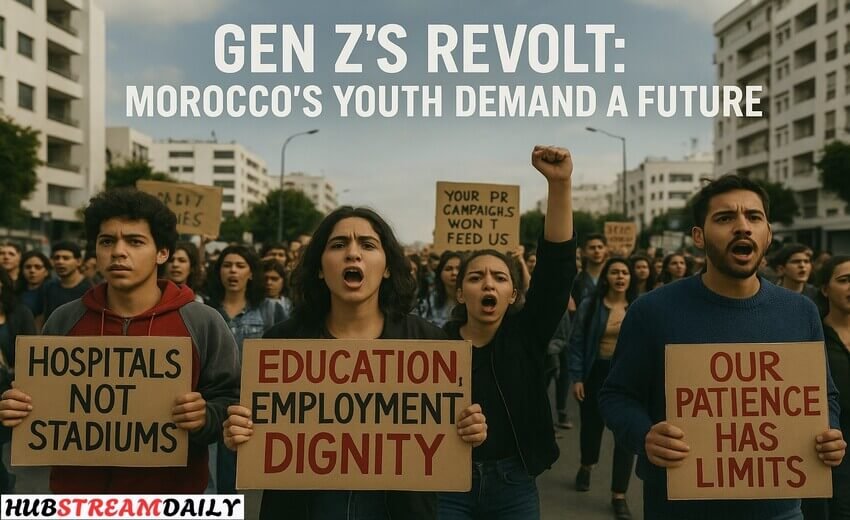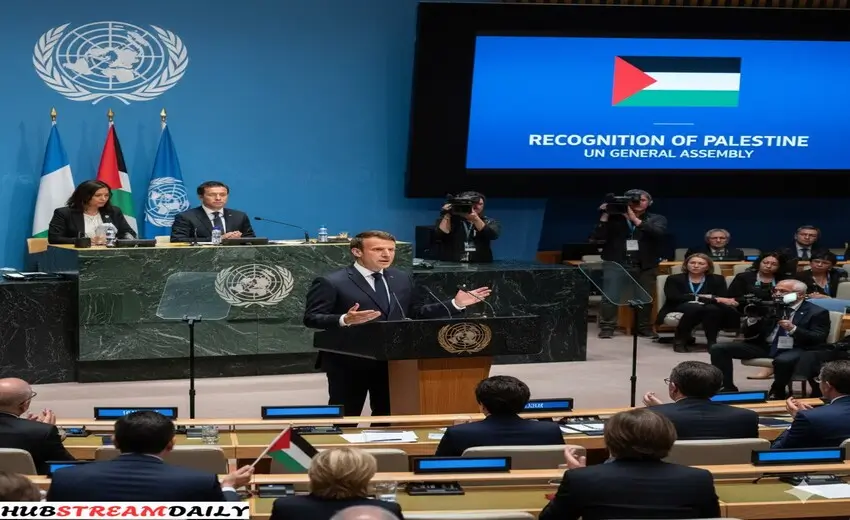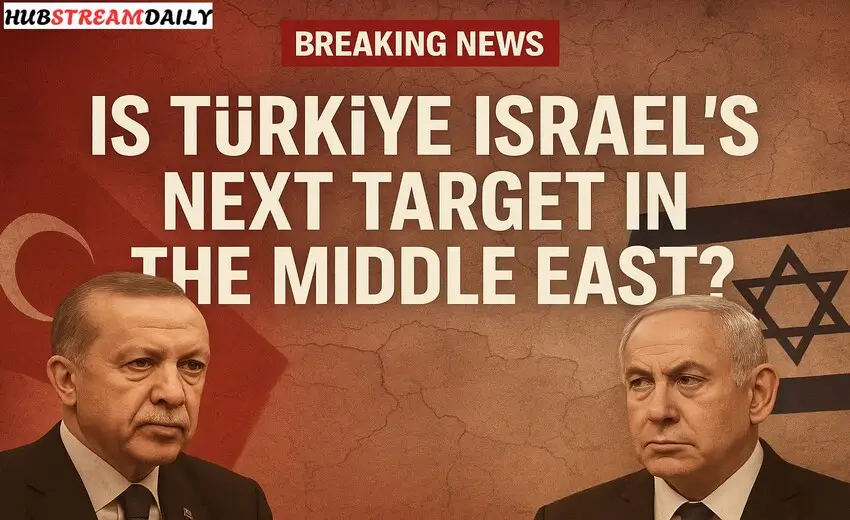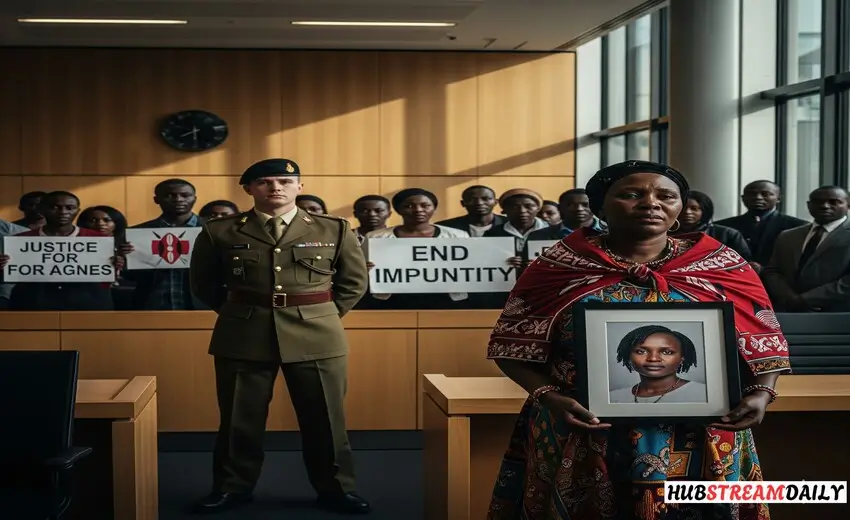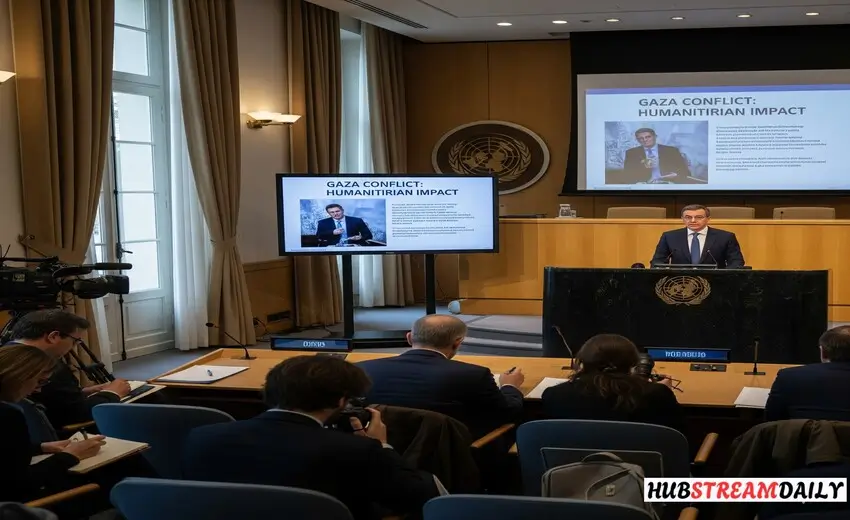
A groundbreaking United Nations inquiry has determined that senior Israeli officials deliberately used language and performed acts that can be classified as an incitement to genocide during the conflict in Gaza. The revelations derived after extensive investigations have sent shockwaves throughout the global community, and they have opened up many questions about accountability, international law, and the future of Israel-Palestine relations.
This study, authored by the UN Independent International Commission of Inquiry on the Occupied Palestinian Territory, including East Jerusalem, and Israel, reflects the Commission’s grave concerns that since the start of the military campaign in reaction to the October 7 Hamas attack, there have been numerous instances of a serious breach of international humanitarian law by Israel.
Background: The Gaza War and Global Outcry
On October 7, 2023, Hamas launched an unexpected attack that killed more than 1,200 Israelis and took over 200 hostages. Since then, Israel has been involved in an unprecedented military operation in Gaza. According to the health authorities in Gaza, the campaign has resulted in the deaths of tens of thousands of Palestinians, most of them women, and children.
Whole districts have been destroyed, the supply of energy to power basic necessities has collapsed, and humanitarian organizations label the area as “unlivable.” The International Court of Justice (ICJ) is already looking at a different case brought by South Africa in which Israel is accused of genocide. However, the results of the UN investigation not only confirm the allegations of genocide but also provide evidence-based documentation of top Israeli officials employing vocabulary that could have instigated the killing of the masses.
What the UN Inquiry Found
The commission described instances of “dehumanizing language, inflammatory rhetoric, and calls for mass destruction” which were not just ideological but actual threats, and were uttered by top Israeli officials, including Cabinet and members of Parliament, in several speeches, statements, and interviews.
- Some of the direct quotes cited in the report were from officials labeling Gaza residents as “human animals” and proposing their “erasure”.
- The report pointed out that this type of verbal abuse, accompanied with military operations that overwhelmingly affect the non-combatants, turns out to be the grounds for the indictment of the crime of genocide imago that perpetrators’ group is incited.
- The investigators traced the pattern of this rhetoric not to an isolated case but to a consistent theme overlaid across political speeches, media engagements, and official communiqué.
The commission emphasized that the crime of incitement to genocide, under international law, is still a crime even if genocide has not been proven.
Evidence of Collective Punishment
The inquiry furthermore claimed that Israel had adopted practices characteristic of collective punishment such as severing Gaza’s 2.3 million people from food, water, fuel, and medical supplies. The report indicates these moves were not made out of necessity but were freedom calculated, consistent with speeches that reduced the Palestinian people to subhuman and portrayed them as aiding and abetting Hamas by their silence or passivity.
International law scholars argue that the act of taking away the absolute necessities support for the civilians is a war crime. The concerted use of degrading language by the Israeli leadership zealously as well as the extreme blockade of civilian life focusing mainly on the already deprived contributions to such arguments making the whole affair seem not only as a military necessity but also as having genocidal intent.
International Reactions
The UN report sparked immediate, angry global debate.
- The Palestinian Authority officials were among the first to react to the report, declaring that the findings prove what Palestinians have been saying for years. “This is a very late acknowledgment of Israel’s policies of genocide,” a senior official in Ramallah commented.
- Conversely, Israeli Prime Minister and other leaders characterized the report as another case of bias and of being politically motivated. Along with the rest of the UN, he accused the body of “whitewashing the atrocities of Hamas” and stated Israel is the “most moral army in the world.”
- They did not hold a united front. European countries partly agreed with the report and cast questions at the necessity of prosecution while the US totally excluded genocide framing by reiterating the right of self-defense of Israel.
- The likes of Amnesty International and Human Rights Watch also called upon the international community to act decisively on the revelations in the report by imposing sanctions on the perpetrators and pushing accountability further.
The Legal Implications
Should the conclusions be taken as fact, the ramifications could spread far and wide over the legal landscape:
- International Criminal Court (ICC): It may become even more complicated in the light of these findings, a situation already existing in the ICC where charges of war crimes, crimes against humanity are filed against Israeli leaders.
- State Responsibility: Countries supplying arms or politically supporting Israel while fully aware of the risk of genocide could be held accountable by law.
- What is more, although the US veto power makes it improbable, such a report may ignite calls for the implementation of measures such as arms embargo, imposition of sanctions or even peacekeeping interventions by Security Council.
One of the early signs that the commission of genocide is imminent is the use of genocidal hate speech, according to legal experts. Both the genocide in Rwanda in 1994 and the massacre at Srebrenica in 1995 after tracing back their respective histories came to the conclusion that the killings that followed were preceded by the same pattern of inhumanizing the victims through language.
Voices From Gaza
The UN inquiry’s findings were based on tenonies among others resulting in very dark pictures showing the situation in the besieged Gaza. According to the descriptions given by survivors, there are instances where several members of a family were killed in a single airstrike, children who were weak due to starvation, and hospitals unable to cope with the number of wounded that arrive.
An unidentified resident of Gaza spoke to investigators saying:
“When Israeli officials call us animals we understand that is why they bomb our homes with families inside. They don’t view us as people.”
The witnesses had recounted the mental aspect of the conflict as the report’s legal and medical sections did.
Wider Regional Impact
Such a conflict, the inquiry maintains, that could have a destabilizing influence on the entire Middle East is what they are talking about. The war in Gaza has caused the areas of Lebanon, Syria, and the Red Sea to be affected by the conflict, thus facing the danger of a regional confrontation.
The allegations of genocide have become the common ground among Arab and Muslim-majority countries, several of which advocate the imposition of international sanctions against Israel. At the same time, worldwide demonstrations in favor of Palestinians have been getting bigger, and this has been creating an increasing amount of political pressure on Western governments that continue to support Israel militarily.
Critics of the UN Report
Those in support of Israel say that the inquiry is determined not to consider Hamas’s initiatives as the primary cause of the conflict and the incessant rocket attacks and hostage-taking. They argue that it is the aim of Israel’s military forces, albeit with tragic consequences, to disable the various installations of Hamas which is riven with residential areas.
Critics additionally mention that UN agencies have been charged with being biased against Israel in the past, and they doubt the trustworthiness of some interviews done in Gaza under Hamas control.
What Comes Next
Publishing this report is only the first step in a process that is expected to be not only long but also very controversial. The UN General Assembly can inquired into the findings as well as the ICC can step up its investigations. On the one hand, civil society will, most likely, encourage more pressure on the issue of accountability, while, on the other hand, governments will be calculating the political ramifications of such steps taken.
There is a warning in the report:
“The world must listen to history’s lessons. The genocide-characterizing speech that has been neglected is the ramp to the following crimes. The lack of decisive action now will drive this already tragic catastrophe to spiral further.”
Diplomatic Fallout
The UN inquiry has exacerbated the tension in the already troubled diplomatic relations. A number of Latin American countries such as Chile, Colombia, and Bolivia, have announced the withdrawal of their ambassadors from Israel with the reason being the breach of international law by Israel. South Africa, the initiator of the ICJ case, has recognized the report as a confirmation of its allegations.
On the other hand, the EU is still undecided. It is clear that Ireland, Spain, and Belgium are more inclined towards the extension of the investigations and have expressed this view, whereas Germany and Hungary have dismissed the accusations and declared that Israel has the right to defend itself. The position of the United States towards Israel is even stronger as it has said that calling Israel a perpetrator of genocide will make peace negotiations more difficult and support Hamas giving rise to further violence.
This diplomatic divide shows that this conflict has become so polarizing in the Middle East that it is still affecting players of the global political arena.
Civil Society Response
According to the report, human rights groups, grassroots organizations, and faith-based movements have rapidly gathered around it. Shortly after the UN’s announcement, pro-Palestinian protests were held not only in London but also in New York, Johannesburg, and Jakarta.
Some legal advocacy groups have started to take court actions in their local courts against Western governments, which apparently continued to sell arms to Israel. A group of lawyers in the UK has already submitted an application to the High Court, asking it to reconsider the legality of the planned weapon exports in light of the allegations of genocide.
These civil society actions reflect past campaigns that successfully pushed governments to respond during the conflicts in South Africa’s apartheid era and the Darfur genocide, therefore indicating a rising wave of global activism.
Humanitarian Warnings
Each day the humanitarian crisis in Gaza gets worsened. UN agencies warn that famine is impending, with almost half of the population in Gaza at risk of severe food insecurity. Hospitals have been hit by bombs and are running short on resources; staff have to use their bare hands to carry out surgeries.
The World Health Organization (WHO) has labeled the health emergency in Gaza as “disaster within a disaster.” The aid workers’ message is that the suffering may reach heights never seen in modern wars if the hate speech recorded in the UN report is not addressed.
After thorough investigation, the inquiry holds the view that the combination of genocidal rhetoric, indiscriminate attacks, and systemic deprivation, without immediate intervention, will force Gaza to go beyond the brink of survival.
Finally, The findings of the UN investigation mark a shift in the recognition of the conflict in Gaza by the international community. It is still unclear the extent of the impact that the report has in holding those responsible accountable, considering the politics of world diplomacy.
However, the facts are indisputable: words have an effect. Leaders who dehumanize through language set the stage for atrocities of a scale that cannot be fathomed. Humanity is now confronted with a grave test—it is either to commit fully to the pledge of “never again” or to let history run its course in Gaza.

